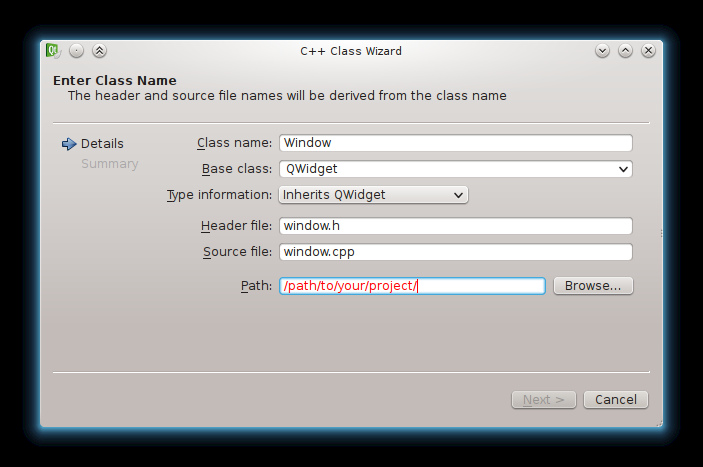
Qt Meta Object Compiler Install Flash
QT uses MOC, a meta-object compiler. PyQt v4 is a set of Python bindings for v4 of the Qt application. Install Qt Creator (IDE for Qt) in. Nokia acquired Trolltech ASA on 17 June 2008 and changed the name first to Qt Software.
Templates are a builtin mechanism in C++ that allows the compiler to generate code on the fly, depending on the type of the arguments passed. As such, templates are highly interesting to framework creators, and we do use advanced templates in many places in Qt. However, there are limitations: There are things that you can easily express with templates, and there are things that are impossible to express with templates. A generic vector container class is easily expressible, even with partial specialisation for pointer types, while a function that sets up a graphical user interface based on an XML description given as a string is not expressible as a template. And then there is a gray area in between. Things that you can hack with templates at the cost of code size, readability, portability, usability, extensability, robustness and ultimately design beauty. Both templates and the C preprocessor can be stretched to do incredibility smart and mind boggling things.
But just because those things can be done, it does not necessarily mean doing them is the right design choice. Best desktop pc. Code, unfortunately, is not meant to be published in books, but compiled with real-world compilers on real-world operating systems. Here are some reasons why Qt uses the moc: Syntax Matters Syntax isn't just sugar: the syntax we use to express our algorithms can significantly affect the readability and maintainability of our code. The syntax used for Qt's signals and slots has proved very successful in practice. The syntax is intuitive, simple to use and easy to read.
People learning Qt find the syntax helps them understand and utilize the signals and slots concept -- despite its highly abstract and generic nature. This helps programmers get their design right from the very beginning, without even having to think about design patterns. Code Generators are Good Qt's moc (Meta Object Compiler) provides a clean way to go beyond the compiled language's facilities. It does so by generating additional C++ code which can be compiled by any standard C++ compiler. The moc reads C++ source files. If it finds one or more class declarations that contain the macro, it produces another C++ source file which contains the meta object code for those classes. The C++ source file generated by the moc must be compiled and linked with the implementation of the class (or it can be #included into the class's source file).
Typically moc is not called manually, but automatically by the build system, so it requires no additional effort by the programmer. The moc is not the only code generator Qt is using. Another prominent example is the uic (User Interface Compiler).
It takes a user interface description in XML and creates C++ code that sets up the form. Outside Qt, code generators are common as well. Take for example rpc and idl, that enable programs or objects to communicate over process or machine boundaries.  Or the vast variety of scanner and parser generators, with lex and yacc being the most well-known ones.
Or the vast variety of scanner and parser generators, with lex and yacc being the most well-known ones.